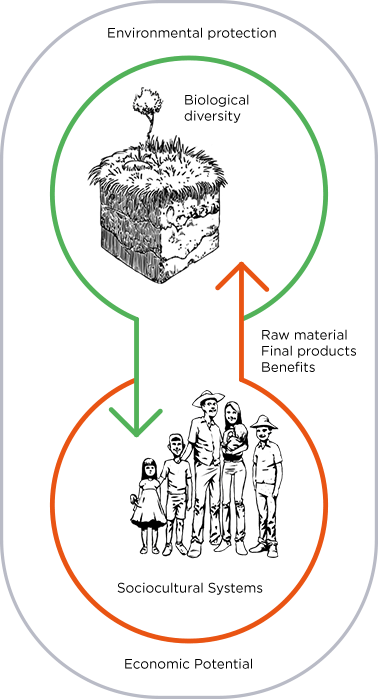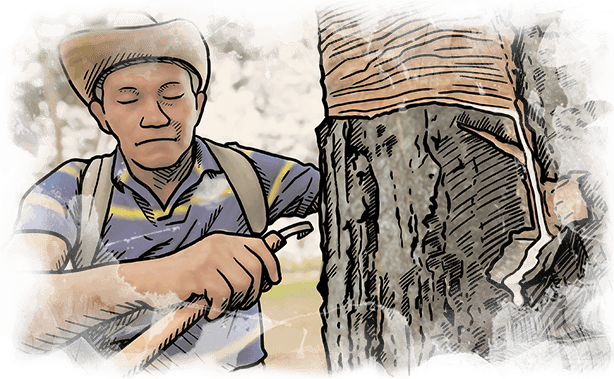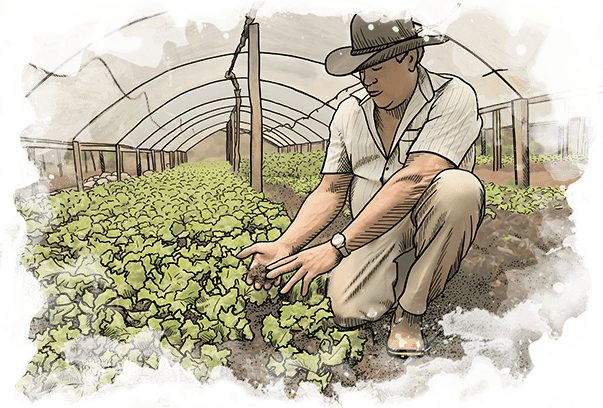Sociobiodiversity means the relationship between biological diversity and sociocultural systems. In this sense, they are goods and services generated from native biodiverse resources destined to the formation of productive chains of interest to indigenous and Quilombola communities. These groups promote maintenance and appreciation of their practices and knowledge and ensure their rights, generating income and promoting a better quality of life and of the environment where they live. The diversity of biomes and tropical ecosystems are very important for the populations who live in these places, generating jobs and income, and a huge economic potential and environmental protection.

Sociobiodiversity
Among sociobiodiversity goods, there is a great variety of fruits, nuts, seeds/oilseeds, resins, gums, medicinal plants, etc. As examples of Brazilian native species for feeding purposes, there are: guabiroba, araticum, butiá, pine nut, pitanga, jaboticaba, cagaita, jatobá, mangaba, pequi, babaçu, cajá, jenipapo, cashew, umbu, murici, araticum, baru, morichi palm, açaí palm, Brazilian nut, among many others.
School feeding can use sociobiodiversity goods, treasuring regional production, rescuing food habits and cultures, strengthening traditional communities and diversifying feeding at schools, in the perspective of Food and Nutrition Security!
(Acquisition from smallholder farming manual. 2nd edition. 2015)
Participation of smallholder farming in school feeding.
School feeding manager in Cidade de Goiás comments on the acquisition of agricultural production from local smallholder farming and how it benefits schools, smallholder farmers and the municipality
Extractivism
Harvest activities of animal, vegetable and mineral-based products.

Organic agriculture
Sustainable agriculture system that uses the ecosystem and does not use chemical inputs, such as certain chemical fertilizers, pesticides and genetically modified organisms.

Agroecology
Among other definitions, it is considered a practice that seeks to integrate environmental resources and mechanisms in agricultural production, by means of scientific and popular traditional knowledge, as well as ecological, agronomical and socioeconomic principles.
Participation of smallholder farming in school feeding.
President of a Quilombola community association in the outskirts of Cidade Ocidental talks about how the incentive of local smallholder farming expansion allows young people to stay in their own communities.
Navegador incompatível
Você está utilizando o IE8 ou versão inferior.

Infelizmente a versão do navegador que você está utilizando não é compatível para este curso.
Atualize seu Internet Explorer para a versão 9 ou superior para visualizar esta página perfeitamente.
Clique aqui para baixar o internet explorer 11.